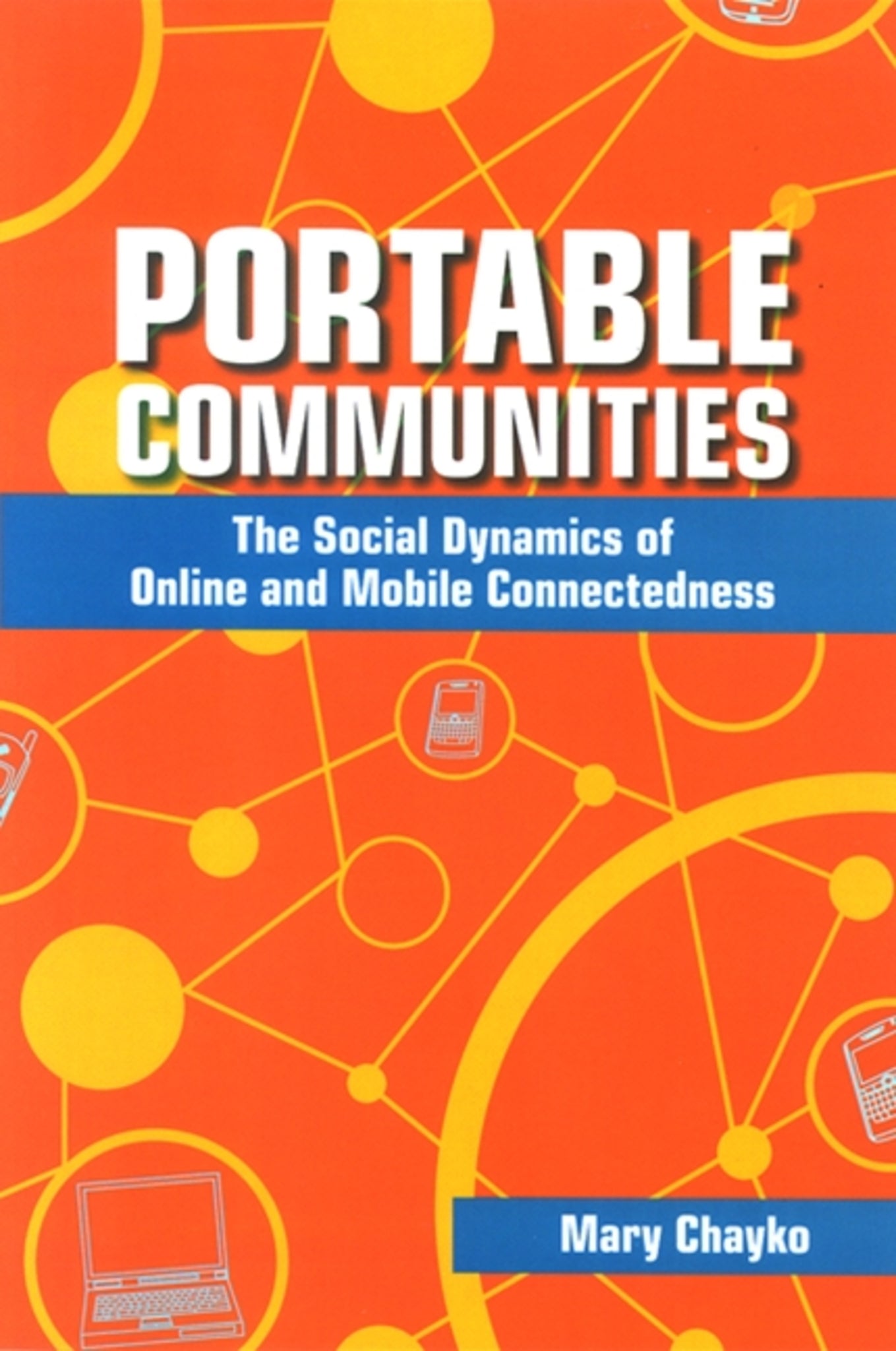We're sorry. An error has occurred
Please cancel or retry.
Portable Communities

Some error occured while loading the Quick View. Please close the Quick View and try reloading the page.
Couldn't load pickup availability
- Format:
-
23 October 2008

Looks at the social implications of having constant access to others through cell phones, wireless computers, and other electronic devices.
Runner-Up, 2009 Association for Humanist Sociology Book Award
"I blog, text, IM, email, and I don't like to be without my cell phone or have to shut it off-even in a theater. Let's put it this way, my 'connections' are more important than whatever I'm doing that might force me to shut my cell phone off." - A Member of a Portable Community
In contemporary American life, community has become a portable phenomenon-you can "get it to go" wherever and whenever it is desired at the push of a button, mouse, or keyboard. In Portable Communities, sociologist Mary Chayko examines the social dynamics and implications of having access to countless others at any time. Teeming with the observations of people who blog, email, instant message, game, and chat on cell phones, wireless computers, and other portable devices, the book captures the appeal and the excitement, the challenges and the complexities, of online and mobile connectedness. Chayko considers some of the external dynamics that emerge as these communities resonate within the larger society-constant availability, social interaction that is more controlled and controllable, and new opportunities for self-expression, creativity, and even voyeurism. Internal social dynamics involving emotionality, intimacy, play, romance, and networking are also fully explored. Portable Communities provides a unique view of shifts in the social landscape and points the way toward needed social and political change.


"Portable Communities is the first book to clearly identify the importance of mobile media in the evolution of new forms of social relations. Anyone interested in matters of online community, identity, and social media should read this absolutely terrific book." — Steven G. Jones, editor of CyberSociety: Computer-Mediated Communication and Community and CyberSociety 2.0: Revisiting Computer-Mediated Communication and Community, and founder, Association of Internet Researchers
"This book addresses how advances in technology are altering the form and content of social relationships. It is THE central question sociologists must address in the coming decades." — Rebecca G. Adams, coeditor of Deadhead Social Science: You Ain't Gonna Learn What You Don't Want to Know
"In the old days, we had to travel to our friends, families, and social networks. Now, Mary Chayko shows us, we take our networks with us, connecting by text, voice, and video wherever we—and they—are. Chayko's timely and fascinating book provides a guide to the new world of 'communities to go.'" — Barry Wellman, coeditor of The Internet in Everyday Life and Director, NetLab, University of Toronto
"In this fascinating volume, Mary Chayko explores the way people use their communication technologies to produce conviviality and connections. She insightfully captures people playfully and seriously engaging their online and mobile communities, and she shows how ordinary physical limits are transcended to create rich worlds of meaning and interaction." — James E. Katz, author of Magic in the Air: Mobile Communication and the Transformation of Social Life and Director, Center for Mobile Communication Studies, Rutgers University
I. Introduction: The Internet, Mobile Phones, and Community
1. The Portability of Social Connectedness
II. Internal Dynamics: Inside the Portable Community
2. Thinking in Tandem: Cognitive Connectedness
The Cognitive "Face" of the Community
Sociomental Space
Cognitive Resonance
Stories and Collective Memories
Proximity, Presence, and Reality
3. Feeling Connected: Emotionality and Intimacy
Friendship and Intimacy
Trust and Social Support
Happiness and Hostility: The Moderation of Moods and Behavior
4 Playing Around: Fun, Games, and Hanging Out
Games
Just "Hanging Out"
Playful Talk: Humor, Gossip, and Flirting
The Seductive Allure of Fun
5 Social Networking: Convenience, Practicality, and Sociability
Sociability
Convenience
Dating, Romance, and Sex
Learning, Working, and Getting Things Done
III. External Dynamics: The Portable Community in the Society
6 Being There: Constant Availability
Comfort and Companionship
Emergencies
Anxiety, Apprehension, and Overload
The Impact on Privacy
7 Harnessing Social Interaction: The Control of Time, Space, and People
Where, When, and Whether We Interact
Technology-Based Strategies for Interaction
Spontaneity and Social Interaction
8 Creating, Expressing, and Extending the Self(and Watching Others Do So)
Socialization in a Technological Age
The Making and Remaking of the Self
Voyeurism, Watching, and Lurking
Multitasking and the "Hyperlinking" of Identity
9 Shaping the Social Landscape: Equalities, Inequalities, Possibilities
Technological Divides and Power Differentials
Old Problems, New Angles
Agency and Activism: Mobilizing for Social Change
A Look Ahead
Acknowledgments
Appendix 1. The Methodology
Appendix 2: Profiles of Interview Subjects
Notes
References
Index



